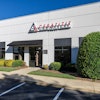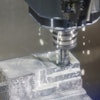U.S. industrial companies, on average, saw a higher tax burden than their foreign counterparts in recent years, according to a new analysis by PwC US.
The company's 2015 Assessing Tax report, which tracked companies across seven distinct sectors, found that 143 U.S.-based companies had an average effective tax rate of 28.6 percent between 2012 and 2014. The 159 companies based outside the U.S., by contrast, saw an average ETR of 25.9 percent during that span.
Moreover, the 31 percent ETR for U.S. companies last year was the second-highest worldwide. Japan's rate of 34.2 percent topped the analysis, while the U.K. and Hong Kong brought up the rear at 16.3 percent and 14.5 percent, respectively.
Overall, the worldwide average ETR of 27.3 percent between 2012 and 2014 was nearly identical to the rate between 2011 and 2013, which analysts attributed to stabilized tax rates following the economic recovery.
Free Whitepaper: The Definitive Guide To Pricing Optimization
“The sustained recovery in the global business climate has supported increased profitability and led to reduced losses among industrial products companies, which has resulted in more consistent tax rates,” said Michael W. Burak, PwC's U.S. global industrial products tax leader.
For companies in the industrial manufacturing and metals segment, the average effective tax rate for over three years amounted to 27.3 percent between 2012 and 2014, down from the 28.5 percent average between 2011 and 2013.
PwC analysts said that the manufacturing sector saw benefits last year due to more efficient operations, faster technology implementation, shorted product cycles and improved responses to customers. In addition, a series of strategic acquisitions also benefitted manufacturing in 2014.
Companies involved in mining, however, saw volatile demand last year amid fluctuations in global production.
The automotive sector, meanwhile, reported a 26.2 percent average ETR over the last three years — a rate nearly identical that of 2011 to 2013.
PwC analysts said that incentives and foreign operations helped hold down taxes; the U.S. market, in particular, benefitted from exposure to overseas markets with lower tax rates.
“The U.S. continues to benefit from reduced energy costs, spurning truck sales, while macro-economic issues in Brazil, China and Asia Pacific continued to weigh on the industry," added PwC US automotive industry tax leader Amy Solek.



















